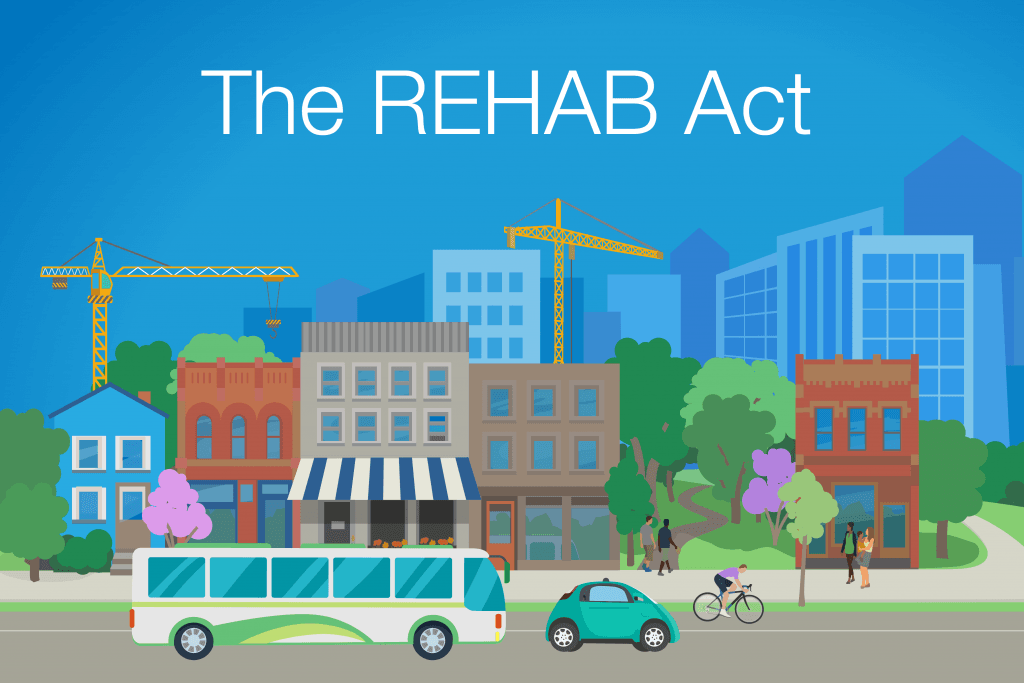
News
By Helen Hope, March 2, 2021

Today, Congressman Earl Blumenauer (OR-03) re-introduced the Revitalizing Economies, Housing, and Businesses (REHAB) Act of 2021, a bill that provides incentives to develop more housing in areas near transit, creating more opportunities to live in walkable, transit-connected neighborhoods.
Join LOCUS and the bill’s original congressional sponsor on Monday, March 22 at 3:00 p.m. ET for a brief presentation about the REHAB Act, a discussion about how it would work, and information on what you can do to ensure this vital bill becomes law. Register here.
The current real estate market is flawed. Developers are able to easily build and offer a glut of drivable suburban housing, even as more and more buyers demand walkable urban neighborhoods. Communities across the country are struggling during an economic crisis brought on by COVID-19. The unmet demand for walkable, transit-connected neighborhoods leads to expensive housing in towns and cities, and oversupplied development in sprawling suburbs far from jobs and affordable transportation. And current federal incentives for community development, while important, are narrowly focused on individual buildings or businesses, rather than helping revive entire neighborhoods or communities
Enter the REHAB Act.
Introduced by Representative Earl Blumenauer, REHAB Act provides incentives to develop more housing in areas near transit, meeting the demand for new attainable housing and growth in walkable, transit-connected areas by boosting infill and redevelopment.
Through a project-based tax credit, the REHAB Act offers a 15 percent baseline credit for rehabilitating non-historic buildings 50 years old and older within a half mile of an existing or planned public transportation facility. Public infrastructure and attainable housing expenditures receive an additional 10 percent credit, for a total credit of 25 percent. Eligible projects include residential rental property, building expansion, rehabilitation, and new construction on adjacent lots on the same block.
This tax credit encourages greater private capital investment in affordable housing, economic development, and public infrastructure—like better bus stops, new street lighting, sidewalks, bike lanes, rain gardens, and street repaving. Because of this holistic investment, we get more walkable, equitable neighborhoods that people can afford.
This bill needs extensive public and local support to pass. Individuals like you, and national, state, and local organizations need to tell the new Congress that this bill is key to meeting the demand of neighborhoods Americans want. (REHAB was also introduced in the last Congress.)
Congress needs to act now to pass this important legislation—to help communities and businesses get back on their feet, and to give people the healthy, equitable, and walkable neighborhoods they demand.
We urge Congress to pass the REHAB Act this year to create more opportunities to live in the kind of walkable, transit-connected neighborhoods that Americans of all income levels are demanding.
Related News

© 2025 Smart Growth America. All rights reserved
Site By3Lane Marketing












